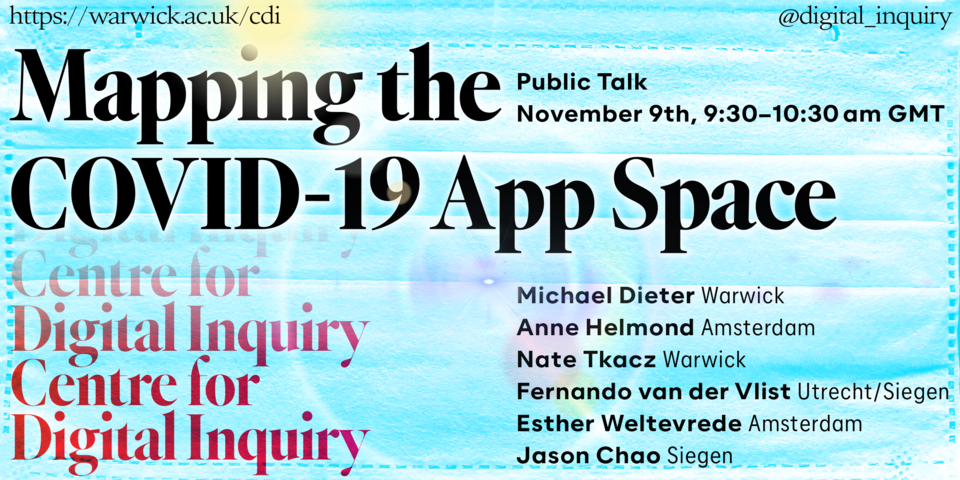On the 9th of November, our friends from the Centre for Digital Inquiry, Warwick’s hub for critical digital research, organize a public talk about their ‘COVID-19 App Store and Data Flow Ecologies’ project.
Apps have emerged as a key part of the response to COVID-19 around the world. Initial research and critical assessments of COVID-19 apps, however, have raised a number of important concerns from issues around privacy and security to the adoption rates required for their effectiveness. This project contributes to emerging public and policy debates through digital methods research of COVID-19 apps.
Their approach is unique because they are moving beyond an analysis of single apps, but they look at multiple apps and their inter-relationships. Critical data studies have demonstrated that a focus on relations between apps and data infrastructures is vital since no apps operate in isolation.
Some facets of the project include: mapping algorithmic and curatorial ordering practices in app stores, tracing data flows by capturing network connections, decompiling apps to identify third-parties, and performing data-centric walkthroughs to consider the mediation of information disclosure and consent. By combining these methods, the project aims to provide an assessment of the governance risks and ethical challenges posed to the public by COVID-19 apps.
On the 9th of November investigators Dr. Michael Dieter (Centre for Interdisciplinary Methodologies, University of Warwick), Dr. Anne Helmond (Media Studies, University of Amsterdam, Netherlands), Dr. Nathaniel Tkacz (Centre for Interdisciplinary Methodologies, University of Warwick), Dr. Esther Weltevrede (Media Studies, University of Amsterdam, Netherlands) and contributing researchers Fernando van der Vlist (University of Siegen, Germany) and Jason Chao (University of Siegen, Germany) will have an online dialogue about their project.

Mapping the Covid-19 App Space
November 9th, 09:30 – 1-:30 am GMT
Online
Register here
This project is funded by an ESRC COVID-19 Rapid Response Grant and partnered with the Ada Lovelace Institute.

